WEST FARMINGTON — Step into the basement of the Grange Hall in this central Maine town, and the pungent odor of cilantro practically knocks you off your feet.
A long train of the bright green herb, heaped onto pushed-together tables, reaches nearly across the entire room.
Dyanna Lincoln and her aunt, Sylvia Andrews of South Road Farm in Fayette, are busy ripping leaves off of the plants so they can discard the stems. The cilantro was harvested this morning, a little later than ideal, so the women are worried the strong flavor in the stems might overwhelm the batch of pesto they’re about to make in the Grange kitchen.
Today, they will be here until they’ve filled at least 300 containers, 4.5-ounces each, with their spicy cilantro and sweet cilantro pestos. The South Road Farm pestos are bound for the Specialty Foods Pavilion at the Fryeburg Fair, which runs from Sept. 28 to Oct. 5. It will be their first appearance at the popular fair.
Tomorrow, the two women will be back at the Grange Hall to do it all over again, only they’ll be making arugula pesto. The work load comes in bursts. Some days they’ll be planning and planting; others they’ll be chopping ingredients for 12 to 14 hours – or doing nothing at all.
It’s all part of a master plan to put their collection of handmade, small-batch pestos into as many kitchens as possible, without losing the authentic, artisanal feel of the business.
Since 2012, Lincoln and Andrews have been making pestos in both classic (basil) and unconventional flavors such as sun-dried tomato, fennel-mint, dill, lavender-basil, lemon-artichoke, garlic scape and sage-parsely-walnut. They sell the containers for $5 apiece at central Maine farm stands and co-ops.
‘A FRUSTRATED ENTREPRENEUR’
Before Lincoln became obsessed with pesto, she worked as a geneticist for 27 years, the last 15 at Tufts Medical Center in Boston and Dartmouth-Hitchcock Medical Center in Lebanon, N.H.
“I’ve probably always been a frustrated entrepreneur,” she said. “Even while I worked in genetics all those years, I was designing knitwear on the side. I sold to companies like L.L. Bean. I sold swatches to agents in New York City. I sold my own designs in boutiques. I’ve always had my fingers into something else.”
Lincoln started making pesto in the 1980s, at a time when many Americans were experimenting with Mediterranean flavors, learning the definition of extra-virgin olive oil, and stocking their refrigerators and pantries with “exotic” items that are now household names – foods such as basil, pine nuts and Parmigiano Reggiano. It wasn’t long before pesto was being tossed with roasted veggies, added to meatballs and smeared on sandwiches for an extra layer of flavor. Home cooks began experimenting with other kinds of pesto, replacing basil with pistachios, arugula and sun-dried tomatoes.
For years, virtually all that Lincoln made was parsley pesto. “Then, in 1992, I took a trip to Italy,” she said. “I had the luck to be introduced to this family, and I spoke just enough Italian to offend the language.”
The matriarch of the family spoke no English, but somehow they muddled through. She taught Lincoln how to make authentic basil pesto with a mortar and pestle. Lincoln eventually broadened her repertoire from basil and kept experimenting, always thinking when she was cooking: “What kind of pesto would go with this?”
It dawned on her that pesto might just be the product she’d been searching for to start her own business. As Americans grew ever more interested in artisanal foods, the timing seemed right. Two years ago, Lincoln partnered up with her aunt Sylvia, an energetic woman with short silver hair who is in charge of packaging the South Road Farm pestos. Sylvia and her husband, Tom Andrews, own South Road Farm in Fayette, a 70-acre farm with stunning views of the lakes region. They raise dairy goats and make goats’ milk soap and other products, so already knew what it takes to launch a small business.
Though Lincoln owns the pesto business, she says her aunt is “really a partner.”
“She’s a master gardener, and I spent a lot of the past three years learning about growing herbs from her,” Lincoln said.
In the first year, Lincoln and Andrews grew all the herbs themselves, chopping them up in a small home food processor. “I tend to prefer the mortar and pestle, but that’s not feasible on a commercial scale,” Lincoln said, adding that she tries to mimic its results in her basil pesto by leaving out some of the basil, most of the nuts and all of the cheese until the last step. Pulsing those ingredients in last leaves larger bits to mix in with the finely chopped ingredients, “so our basil pesto is really like rustic basil pesto.”
That first year, Lincoln and Andrews went around “basically begging people to buy the product,” Lincoln recalled. The next year they created labels and a logo, their business quintupled, and they were picked up by a distributor, Crown of Maine.
It happened so fast, they were racing to keep up, so they contracted with Emery Farm in Wayne to grow most of the basil for them, along with arugula, tomatoes and garlic scapes. Lincoln and Andrews still grow the cilantro, parsley, fennel, mint and sage themselves at South Road Farm. And they still dry the tomatoes for the sun-dried tomato pesto themselves, steeping them in olive oil for at least a couple of weeks.
A SHORT COMMUTE
The Grange kitchen is 20 to 25 minutes from South Road Farm. On production days, fresh produce sits in bowls all over the kitchen – ginger, limes, colorful sweet peppers, habanero and serrano chili peppers – along with a huge wedge of Parmigiano Reggiano. Scales used to weigh produce are on the counter, as well as a notebook that Lincoln has kept since the start to record recipe adjustments and trials.
Some of her experiments work out well. Her spinach-arugula pesto was a hit, so then she paired spinach with Swiss chard, and added pecorino and Parmagiano, garlic, walnuts, sea salt and “our secret little ingredient,” and that was even better.
But her first few attempts at a lavender and basil pesto were “horrible.” And, really, who would buy a pesto made with basil, manchego cheese and (gulp) raisins?
“When I processed it, I had this foaming, frothing mass,” Lincoln said. She tried again, stirring in the cheese instead of processing it, and adding just a quarter of the raisins. It was an “interesting” pesto, though not likely to become a bestseller. But this constant experimentation keeps Lincoln from getting bored. “I don’t ever tire of having pesto,” she said. “Part of what’s creative and keeps it fun is it is still small batch, artisan-based and so you’re tweaking it all the time.”
She just picked up 25 pounds of late-season basil from Emery Farm, and she’ll have to adjust her recipe to account for the difference in the taste of the late summer herb. The same is true for late-season versus baby arugula.
Dip a spoon in to taste the pesto in progress, and the flavors of the cilantro and nuts give way to some heat. The longer it sits in the mouth, the better. But it needs salt, and another half tablespoon of lime juice, Lincoln decides. “You don’t want to taste the salt, but you want the salt to punch the flavor up,” she said.
The pestos are flash frozen immediately after they’re packaged. Last year, Lincoln and Andrews had enough stock to supply their customers through the winter. This year, with the added business from the Fryeburg Fair, they’ll probably have to search for places to buy herbs over the winter so they can rebuild their supplies.
Their goal is to turn South Road Farm Pestos into a year-round business. Two more pestos are in the works – that Swiss-chard and spinach combination, and a Maine wild foraged mushroom pesto. Also several salad dressings made from basil pesto, garlic scape pesto and dill pesto. Taken together, this means that it’s time, Lincoln says, to get some help – both advice from small business experts and staff to help process the pesto.
One day, Lincoln envisions selling her pestos beyond Maine’s borders. But for now, “I don’t think we have begun to saturate the Maine market,” she said.
Send questions/comments to the editors.


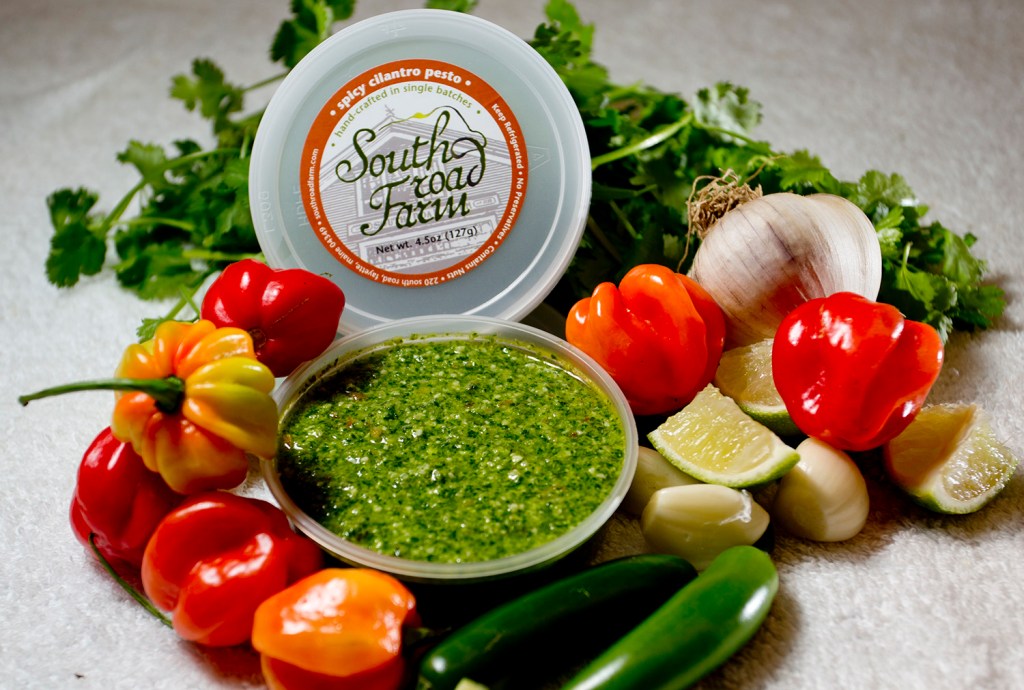
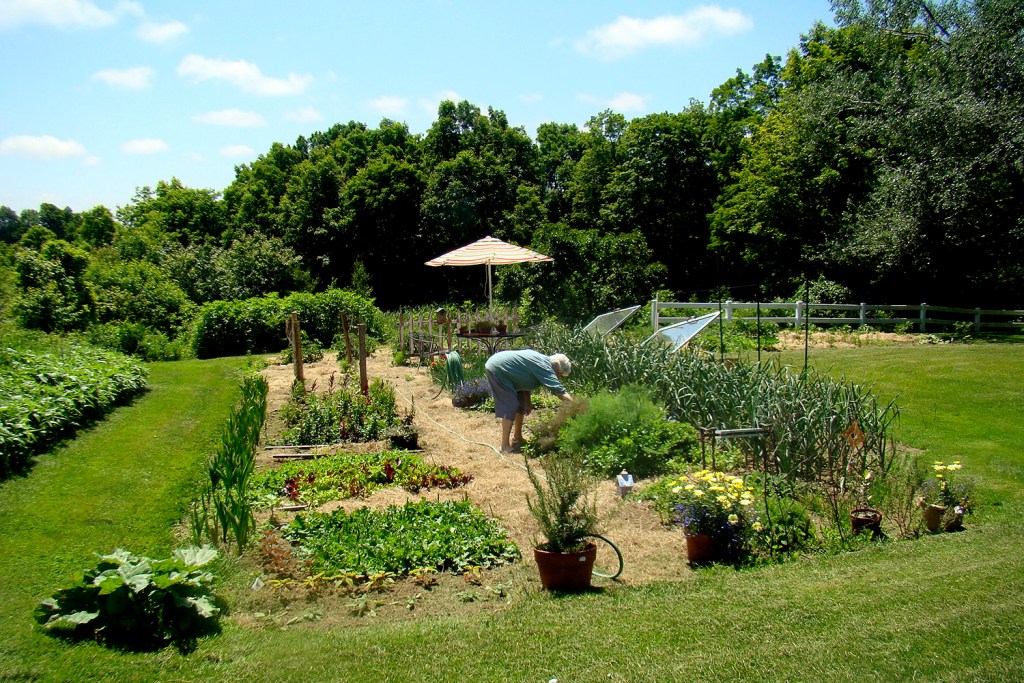
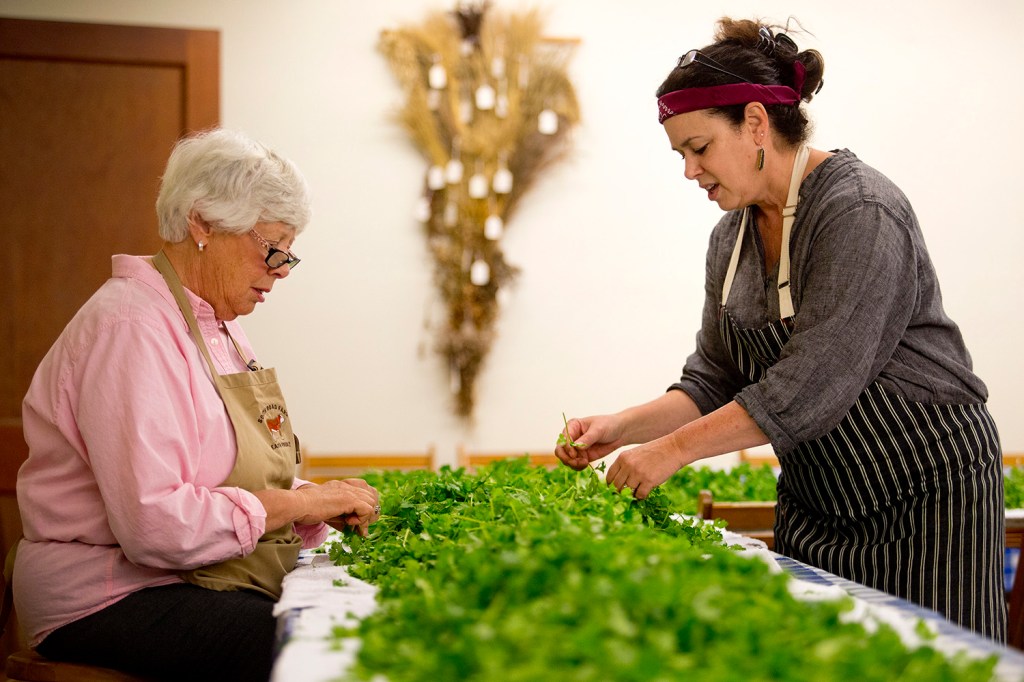
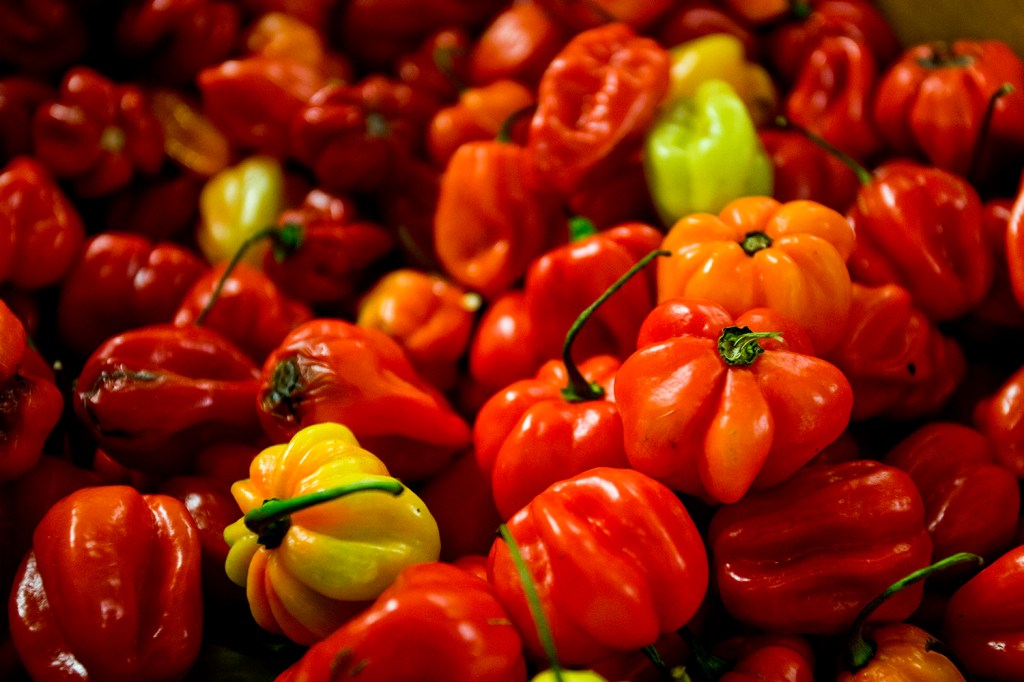
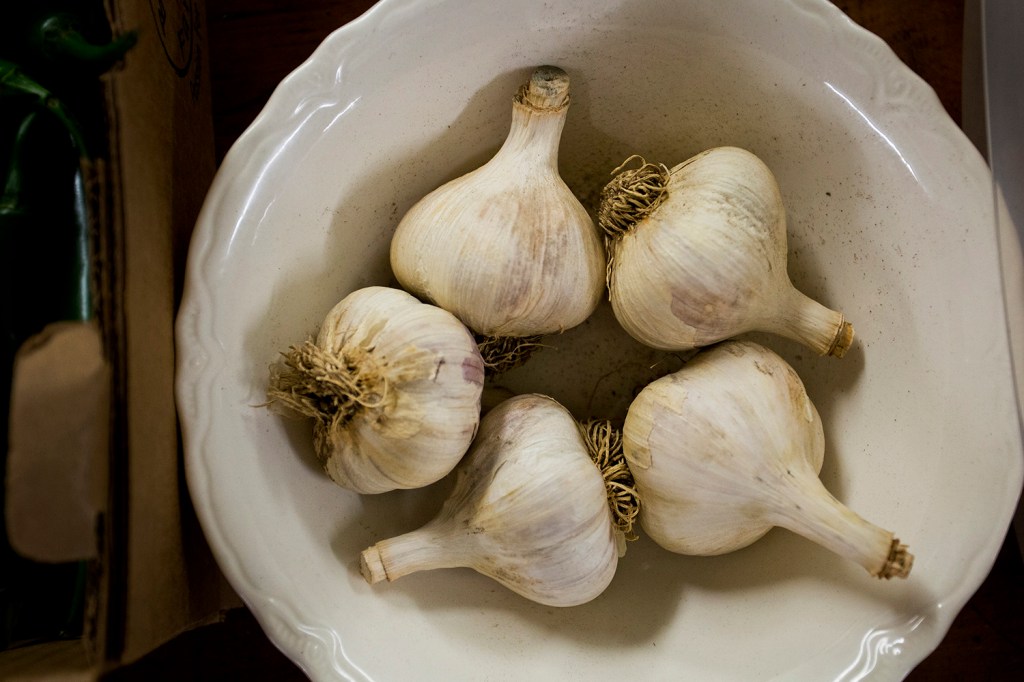
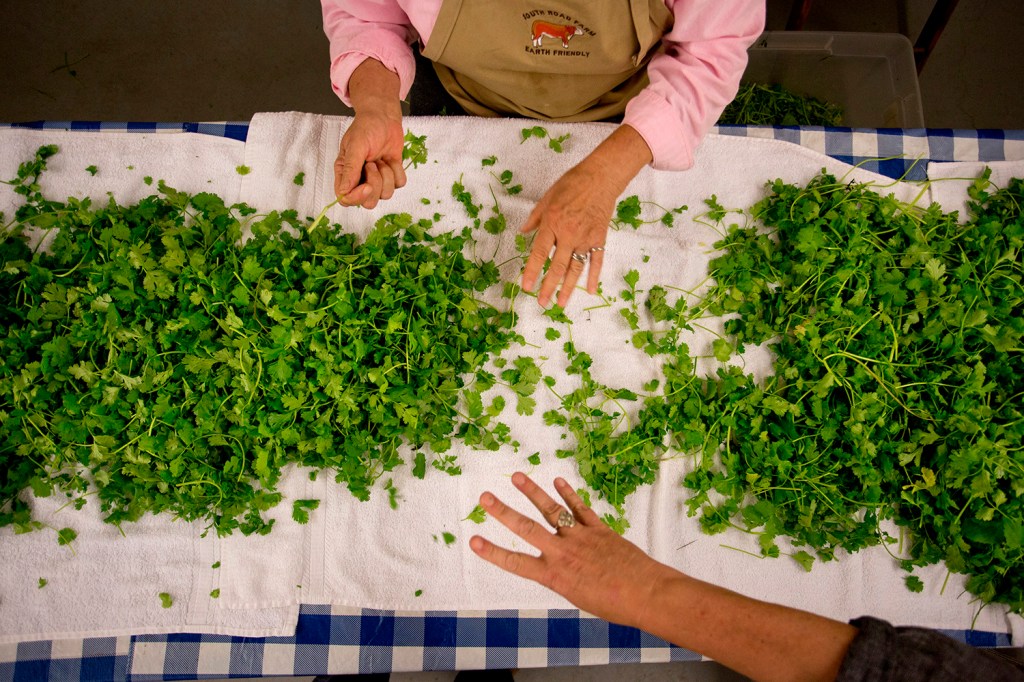

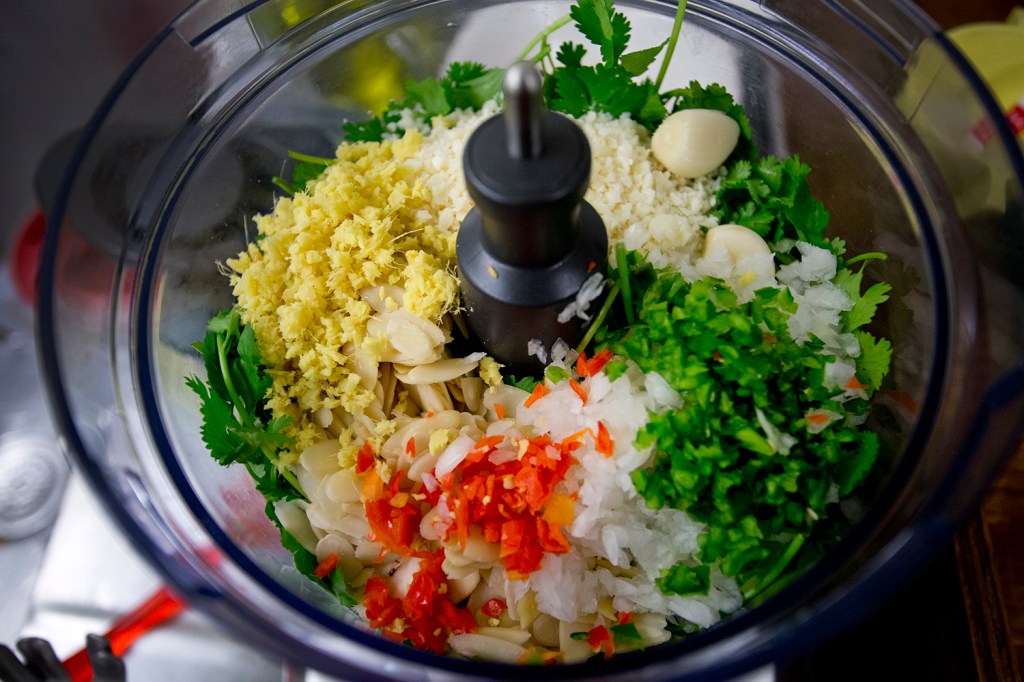
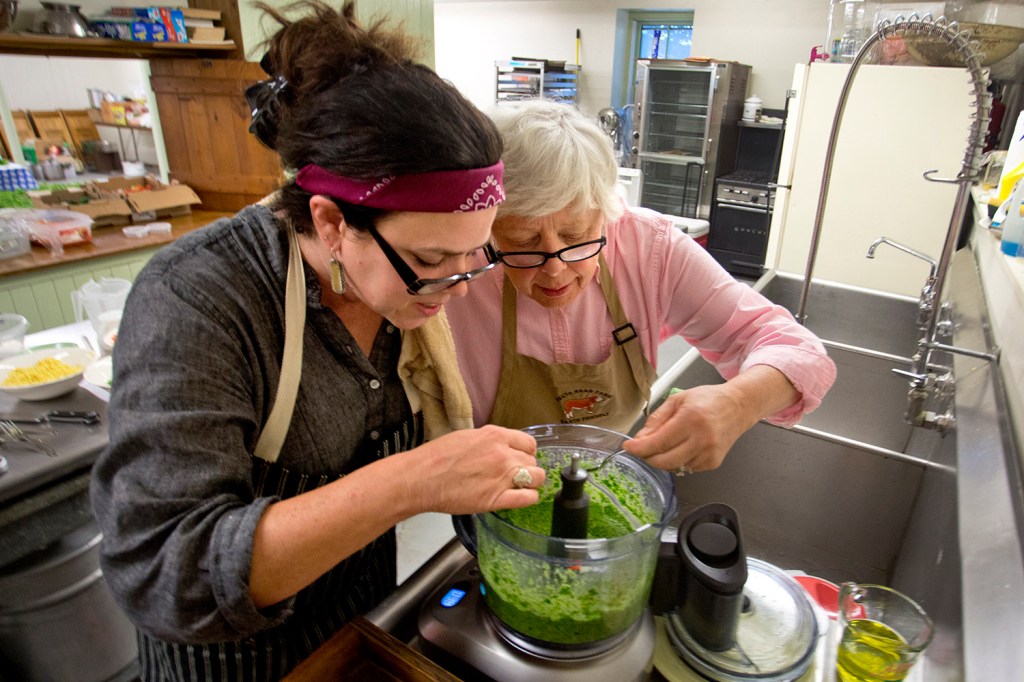

Success. Please wait for the page to reload. If the page does not reload within 5 seconds, please refresh the page.
Enter your email and password to access comments.
Hi, to comment on stories you must . This profile is in addition to your subscription and website login.
Already have a commenting profile? .
Invalid username/password.
Please check your email to confirm and complete your registration.
Only subscribers are eligible to post comments. Please subscribe or login first for digital access. Here’s why.
Use the form below to reset your password. When you've submitted your account email, we will send an email with a reset code.